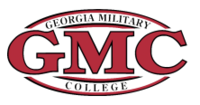Healthcare consulting is a specialized consulting field that involves providing strategic advice and guidance to healthcare organizations to help them improve their operations, enhance patient care, and achieve their business goals. Healthcare consultants work closely with healthcare providers, insurers, pharmaceutical companies, and other stakeholders to address a wide range of challenges and opportunities facing the healthcare industry.

Degrees from Sam Houston State University
Bachelor of Science Health Care Administration

Degrees from Gwynedd Mercy University
Online Bachelor of Science in Business Administration (BSBA) with a Concentration in Healthcare Administration
Types of Healthcare Consultants
There are several types of healthcare consultants, each specializing in different areas of the healthcare industry. Some common types of healthcare consultants include:
Healthcare Management Consultants
These consultants focus on helping healthcare organizations improve their overall management practices, including strategic planning, operations management, and organizational development.
Healthcare IT Consultants
These consultants specialize in helping healthcare organizations implement and optimize healthcare information technology systems, such as electronic health records (EHRs) and healthcare analytics tools.
Healthcare Financial Consultants
These consultants assist healthcare organizations with financial management, including budgeting, revenue cycle management, and financial forecasting.
Healthcare Quality Improvement Consultants
These consultants work with healthcare organizations to improve the quality of patient care, reduce medical errors, and enhance patient safety.
Healthcare Compliance Consultants
These consultants help healthcare organizations comply with healthcare regulations and standards, such as HIPAA and Medicare regulations.
Healthcare Policy Consultants
These consultants focus on analyzing healthcare policies and regulations and providing advice to healthcare organizations on how to navigate and comply with them.
Healthcare Marketing Consultants
These consultants specialize in helping healthcare organizations develop and implement marketing strategies to attract patients and grow their business.
Healthcare Education and Training Consultants
These consultants provide education and training services to healthcare professionals to help them improve their skills and knowledge.
These are just a few examples of the types of healthcare consultants available. Each type of consultant plays a unique role in helping healthcare organizations improve their operations, enhance patient care, and achieve their business goals.

Degrees from Georgia Military University
Bachelor’s Degree Healthcare Management
Job Responsibilities
Healthcare consultants play a vital role in the healthcare industry, serving as strategic advisors to healthcare organizations seeking to improve their operations, enhance patient care, and achieve their business objectives. Their many responsibilities include:
Conducting research and analysis on healthcare issues
Healthcare consultants are responsible for conducting thorough research and analysis on a wide range of healthcare issues, such as healthcare delivery models, patient outcomes, cost-effectiveness of treatments, and healthcare trends. This involves collecting and analyzing data, identifying patterns and trends, and presenting findings to clients in a clear and concise manner.
Developing and implementing healthcare improvement strategies
Based on their research and analysis, healthcare consultants develop and implement strategies to help healthcare organizations improve their operations, enhance patient care, and achieve their business goals. This may involve developing new healthcare delivery models, recommending changes to existing processes, or implementing new technologies to improve efficiency and effectiveness.
Providing advisory services to healthcare organizations
Healthcare consultants provide advisory services to healthcare organizations, offering expert advice and guidance on a wide range of issues, such as strategic planning, regulatory compliance, financial management, and organizational development. Consultants work closely with clients to understand their unique challenges and goals, and develop customized solutions to address their needs.
Overall, healthcare consultants play a critical role in helping healthcare organizations navigate the complexities of the healthcare industry, improve their performance, and ultimately, deliver better care to patients.

Degrees from Indiana Wesleyan University
Online Bachelor of Science in Healthcare Administration
Skills and Qualifications Needed for Healthcare Consultants
To succeed as a healthcare consultant, individuals need a combination of analytical, communication, and problem-solving skills. They should have a strong understanding of healthcare policies and regulations, as well as the ability to analyze complex data and present findings clearly and concisely. A background in healthcare management, public health, business administration, or a related field is often required, along with relevant work experience in healthcare consulting or a related field.
Analytical and Problem-Solving Skills
Healthcare consultants need strong analytical and problem-solving skills to analyze complex healthcare data, identify trends and patterns, and develop innovative solutions to improve healthcare delivery and outcomes.
Communication and Interpersonal Skills
Effective communication skills are essential for healthcare consultants to convey complex ideas and findings to clients and stakeholders. They must also collaborate effectively with multidisciplinary teams and build strong relationships with clients.
Knowledge of Healthcare Policies and Regulations
Healthcare consultants must have a thorough understanding of healthcare policies, regulations, and industry trends to provide accurate and up-to-date advice to clients and ensure compliance with relevant laws and standards.

Degrees from Southeastern Oklahoma State University
Master of Science in Healthcare Administration
Educational Pathways
Most healthcare consultants hold at least a bachelor’s degree in healthcare management, public health, business administration, or a related field. Some employers may prefer candidates with a master’s degree, especially for more advanced or specialized roles. Additionally, obtaining certifications, such as the Certified Healthcare Consultant (CHC) designation, can demonstrate expertise and enhance career prospects in healthcare consulting. We will break down the various pathways into this consulting career.
To become a healthcare consultant, you typically need a combination of education, skills, and experience. Here are the general steps to follow:
Earn a Bachelor’s Degree: Most healthcare consultants have a bachelor’s degree in healthcare management, public health, business administration, or a related field. Relevant coursework may include healthcare policy, healthcare economics, and healthcare information systems.
Consider a Master’s Degree: While not always required, a master’s degree in healthcare management, public health, or business administration can enhance your knowledge and skills and improve your job prospects as a healthcare consultant.
Obtain Certifications: Consider obtaining certifications relevant to healthcare consulting, such as the Certified Healthcare Consultant (CHC) designation. This can demonstrate your expertise and commitment to the field.
Continuing Education: Stay updated with the latest trends and developments in healthcare consulting by pursuing continuing education and professional development opportunities. This can help you stay competitive in the field and advance your career as a healthcare consultant.

Franklin University
Master’s in Healthcare Administration Degree
Where Do Healthcare Consultants Work?
Healthcare consultants work in a variety of settings, including:
Consulting Firms: Many healthcare consultants work for consulting firms that specialize in healthcare. These firms offer a range of services to healthcare organizations, such as strategic planning, process improvement, and IT consulting.
Hospitals and Healthcare Systems: Some healthcare consultants work directly for hospitals and healthcare systems. They may be employed to help improve operational efficiency, implement new technologies, or develop strategic plans.
Government Agencies: Healthcare consultants may work for government agencies at the local, state, or federal level. They may be involved in policy development, program evaluation, or regulatory compliance.
Health Insurance Companies: Healthcare consultants may work for health insurance companies, helping them develop and implement new products, improve customer service, or analyze healthcare data.
Pharmaceutical and Biotech Companies: Some healthcare consultants work for pharmaceutical and biotech companies, providing expertise on market trends, competitive analysis, and product development.
Academic Institutions: Healthcare consultants may work for academic institutions, conducting research, teaching, or providing consulting services to healthcare organizations.
Nonprofit Organizations: Healthcare consultants may work for nonprofit organizations that focus on healthcare issues, such as patient advocacy groups or public health organizations.
Overall, healthcare consultants can work in a wide range of settings, depending on their area of expertise and the specific needs of their clients.

Thomas Edison State University
Undergraduate Certificate in Healthcare Management
Career Advancement Opportunities
Career advancement opportunities for healthcare consultants vary depending on the organization and industry. With experience and expertise, consultants may progress to senior consultant roles, where they oversee larger projects and teams. They may also have the opportunity to specialize in specific areas of healthcare consulting, such as healthcare IT, healthcare finance, or healthcare policy. Some consultants may choose to pursue leadership roles, such as healthcare consulting practice leaders or healthcare consulting firm partners, where they are responsible for setting the strategic direction of the consulting practice and managing client relationships.
Overall, a career in healthcare consulting offers diverse opportunities for growth and advancement, allowing individuals to make a meaningful impact on the healthcare industry while advancing their own professional goals.

Rice University
Professional Certificate in Healthcare Management
Impact of Healthcare Consulting
Healthcare consulting plays a critical role in improving healthcare delivery and patient outcomes by:
- Identifying and implementing best practices: Healthcare consultants help healthcare organizations identify and implement best practices in patient care, operational efficiency, and cost management, leading to improved healthcare delivery and outcomes.
- Streamlining processes: Healthcare consultants analyze and streamline healthcare processes, such as patient scheduling, billing, and record-keeping, to enhance efficiency and reduce errors, ultimately improving patient outcomes
- Enhancing technology adoption: Healthcare consultants advise healthcare organizations on the adoption of new technologies, such as electronic health records (EHRs) and telemedicine, to improve patient care and accessibility
- Improving financial performance: Healthcare consultants help healthcare organizations improve their financial performance by identifying cost-saving opportunities and revenue enhancement strategies, allowing them to reinvest in patient care and services.

Degrees from Florida International University
Online Master of Public Health
Examples of Successful Healthcare Consulting Projects
- Implementation of Electronic Health Records (EHRs): A healthcare consulting firm helps a hospital implement an EHR system, leading to improved patient care coordination, reduced medical errors, and increased efficiency in healthcare delivery.
- Process Improvement in a Healthcare Facility: A healthcare consulting team conducts a process improvement project in a healthcare facility, identifying bottlenecks and inefficiencies in patient flow and implementing solutions to enhance patient care and reduce waiting times.
- Strategic Planning for a Healthcare Organization: A healthcare consulting firm assists a healthcare organization in developing a strategic plan to address emerging healthcare trends and challenges, leading to improved patient outcomes and organizational performance.
Healthcare Cost Reduction Initiative: A healthcare consulting team collaborates with a healthcare organization to identify cost-saving opportunities and implement strategies to reduce costs without compromising patient care quality.

The University of Kansas
Online Master of Public Health and Certificate Programs
Ready to Leap Into Healthcare Consulting?
A career in healthcare consulting offers a rewarding opportunity to make a significant impact on the healthcare industry. Healthcare consultants play a crucial role in improving healthcare delivery, enhancing patient outcomes, and driving positive change within healthcare organizations.
By leveraging their expertise, skills, and innovative thinking, healthcare consultants help shape the future of healthcare and contribute to the well-being of individuals and communities. If you are passionate about making a difference in healthcare and have the necessary skills and qualifications, consider pursuing a career in healthcare consulting.
Take the first step towards a fulfilling career by exploring educational pathways, gaining relevant work experience, and staying updated with industry trends. Start your journey today and make a meaningful impact in healthcare!

Degrees from American Public University
Online Bachelor of Science in Public Health (BS)

